#american female poets
Explore tagged Tumblr posts
Text
I asked my friend the translator, What was the first known act of translation in the history of mankind? His answer was, Probably something into or out of Egyptian. I thought about this for a while and ventured a certainty: No, I said, it was when a mother heard her baby babble or cry, and had to decide in an instant what it meant.
— Mary Ruefle, 'Short Lecture on Translation (Bat City Review, 2012)
273 notes
·
View notes
Text
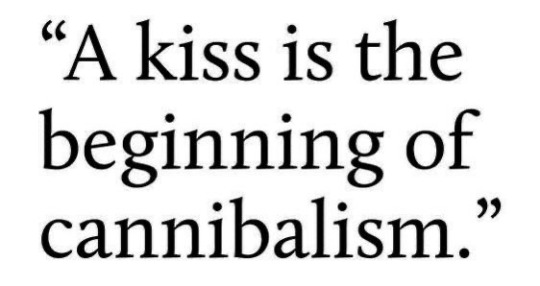
#girlblogger#girlblogging#girl interrupted syndrome#girlboss#gaslight gatekeep girlboss#lana del rey#female manipulator#girl interrupted#alana champion#lily rose depp#ethel cain#post punk#girlhood#self growth#american horror story#poetry#writers and poets#poetic#lover#david lynch#coquette
926 notes
·
View notes
Text

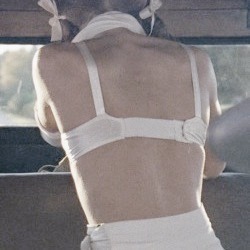
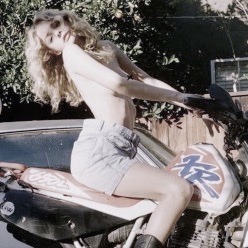
#fawn posts#farmers daughter#preachers daughter#red coquette#americana#coquette americana#american lolita#vintage americana#american beauty#i am a real poet! my life is my poetry#dream girl#female hysteria#girlhood#lana del ray aka lizzy grant#girlblogger#girlblogging#manic pixie dream girl#this is what makes us girls#female rage#lana del rey#dolores haze#valley of the dolls#hands on your knees im angelina jolie#lux lisbon#put me in a movie#off to the races#lisa rowe#ribbons and bows#coquette aesthetic#coquette angel
414 notes
·
View notes
Text

Alice Dunbar Nelson (deceased)
Gender: Female
Sexuality: Bisexual
DOB: 19 July 1875
RIP: 18 September 1935
Ethnicity: African American
Occupation: Poet, journalist, activist
#Alice Dunbar Nelson#lgbt history#black history#bipoc#bisexual history#black excellence#female#bisexual#1875#rip#historical#black#african american#poc#poet#journalist#writer#activist#elder#popular#popular post
148 notes
·
View notes
Text

#susan sontag#journal#quote#lust#literature#writeblr#american literature#female gaze#writers#literary quotes#art#words#ink#spilled ink#spilled words#dark literature#dark poetry#writing#poetry#poemblr#poets on tumblr#spilled writing#writers on tumblr#femininity#writers and poets#anais nin#artists on tumblr#dark academia#dark romanticism#stream of consciousness
111 notes
·
View notes
Text

Sometimes the Bible in the hand of one man is worse than a whisky bottle in the hand of (another)... There are just some kind of men who - who're so busy worrying about the next world they've never learned to live in this one, and you can look down the street and see the results.
- Harper Lee, To Kill a Mockingbird
#bookblr#booklr#girlblogging#literature#literary quotes#quote blog#quoteblr#classic literature#modern classics#american literature#book reccs#book blog#book quote#books#book quotes#life quote#quotes#quoteoftheday#beautiful quote#to kill a mockingbird#harper lee#reading#spilled words#spilled ink#spilled writing#spilled feelings#spilled thoughts#female writers#writers and poets#female author
64 notes
·
View notes
Text

Poet's Dream
Artist: Emanuel Gottlieb Leutze (German-American, 1816-1868)
Genre: Narrative art
Date: 1840
Medium: Oil on canvas
Collection: Pennsylvania Academy of Fine Arts, Philadelphia, PA, United States
#painting#narrative art#oil on canvas#fine art#poet's dream#landscape#female figure#male figure#child figure#flowers#cross#book#dream#sleep#mountains#trees#horizon#emanuel gotlieb leutze#german american painter#european art#artwork#oil painting#19th century painting
24 notes
·
View notes
Text
“People often say with pride, ‘I’m not interested in politics.’ They might as well say, ‘I’m not interested in my standard of living, my health, my job, my rights, my freedoms, my future or any future.’ … If we mean to keep any control over our world and lives, we must be interested in politics.”
– Martha Gellhorn
#original post#spilled ink#text post#writers on tumblr#writing#martha gellhorn#politics#political science#text#quotes#life quote#content creator#small creator#wisdom#writers and poets#political#just girly things#culture#american politics#artists on tumblr#female writers#original writing#quotations#education#spilled words#words#words words words#poetic#life quotes#us politics
25 notes
·
View notes
Text
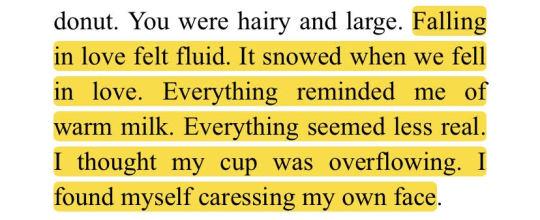
Text ID: “Falling in love felt fluid. It snowed when we fell in love. Everything reminded me of warm milk. Everything seemed less real. I thought my cup was overflowing. I found myself caressing my own face”
Excerpt From: Terese Marie Mailhot. “Heart Berries.”
#literature blog#poetry#literature#poetry blog#academia#light academia#feminist theory#heart berries#terese marie mailhot#indigenous authors#indigenous#indigenous peoples#first nations#native american#female authors#female poets#poem#literature quotes#quote#literary quote#falling in love#my collection#topic: falling in love#falling in love quote#falling in love quotes#dark academia#romantic academia#dark acadamia aesthetic
42 notes
·
View notes
Text
i think as people we aren’t ment to be one thing, one style, one description. i think the reason people perceive you different is because there are a million versions of who u are. you are everyone you’ve ever loved, every lyric you’ve ever felt moved by, every hobby you swore you’d pick up and u only tried it for a month. people are ment to be a sponge. every experience is a sliver of what it means to be alive. you can be sweet but feisty, sad but full of life, beautiful but scared of judgement. its so interesting how u never really know anyone because people are always changing. u aren’t the same person u were a month ago and i think thats good
#fairycore#americana aesthetic#softette#western gothic#southern gothic#american coquette#sofia coppola#writing#writers on tumblr#writers and poets#writeblr#writerscommunity#female writers#ao3 writer#harry potter#tlou fanfiction#fanart#bpd thoughts#thoughts#my thougts#thots#my thots#random thots#thot daughter#bed rotting#tw depressing stuff#tw#tw food#actually bpd#bpd
11 notes
·
View notes
Text
America's Ex T.W/Tags - This Poem deals with US Politics of 2025, War and Death! In addition, this poem also mentions Jeffery Epstein! If these topics are trigger for you, please read at your own discretion. You have been Warned!
America's Ex:
Back in 2016
We fell in love with a man that was extreme.
Confident…fearless, gave many safety and hope.
But the years dragged on…
Breathless brought an end in many ways…
The world was paying back in heliotropes. ______________________
2020- An election many could not escape.
If they were able, they would find a say!
He did not-like the feel of the drape.
We left and he became an X.
Raging on and on…
Doesn’t he get tired from all of this fucked up fun!
4 years without-
A much needed relief and ground!
But like a dog in the pound…
We couldn’t help- but howl and hound.
Plans were being made in secret…
Billionaires deep in castrating weakness.
Disguised as harmless meekness.
Jeffery Epstein…a voice forever muted.
Cause those files would…
Dead-
They roam free without any accountability- Their wormwood. ______________________
2024 appeared-
Shaken and terrified, felt mere.
Feeding the deer.
Giving obscurity in a guise of control.
Ran-
Make America Great Again(MAGA)!
"Fix the economy and battle inflation-". Making it seem wise and grand!
In reality, falsehoods sang undertones of Illicit and Nazi commands.
As well as a fascist hands…
Authoritarian.
The other candidates, suitors-
They fumbled.
Making us go back to our Ex.
Many did not care-
They challenged the test of the dare.
Voted and Won Red- Many lived scared!
______________________
A Few Months have passed by… 2025! Inaugurate… Accoutrements starting to substantiate. Executive orders filed by the hundreds... Wars Declared! Domestic dismantling and terrorism fills the air. This is only the second month- In the long four year fair. * * If... _________________________________
The Future: The Past...Looking back. "I do not know if this would survive the times...". From a written memoir. Their reign ended- But the goals are still the same. Heavy burden this game. Some Misplaced... Many Forgotten... Walking through the graves... I see the same face. The dead in mountains place. White Roses. Lavenders. Spider Lilies. All-types of Carnations. Even a few Hydrangeas and Lotuses. Speak of Moments. Speak of Movements. Of Thoughts and Prayers. Speaking of the deceased- While brining hope to the living feast.
How can the world before- Exist in such turmoil? But no different, like water and oil. But, in-between a touch can gleam. The Remedy...
Fear and Hate can not live- Where empathy and learning seek refuge within. Value and Worth... Authoritarians worst nightmares provoked. Collaboration...a dam to their smoke. The answer in humanity's baroque. "I will always fight...". "I am a safe space ally..." "We have each other backs..." "We will get back on the correct track..." Their voices echo in the dark... Their eyes shine fire sparks.... Photographs and frames in a hallmark. Stars twinkle despite the oligarch. "I think I understand now... Thank you, past lives for your vows".
#spilled thoughts#human condition#spilled writing#writers on tumblr#poets on tumblr#poetry#creative writing#spilled ink#artists on tumblr#poem#presidents day#us history#presidency#inauguration#america#presidents and presidency (us)#us poltics#fascisim#american politics#political#trump inauguration#poetryblr#poems#poet#female writers#writerscommunity#writer#ao3#tdp#toh
10 notes
·
View notes
Text
I do the art because I love it all.
Things, people, the space in between them.
You.
I do the art because I love you. You occupy my mind so completely that I’m gripping my hair and pulling at my scalp, and it runs over onto everything I hold in my hands. I love the steps you take, the way the sun touches you, the way you touch me. I visit you in the museums and watch your colors for a while, until my eyes hurt. I ponder what you mean as I sip my lukewarm coffee. Until the security guard tells me it’s closing time and he’s locking up. I beg him for five more minutes and he shakes his head apologetically.
I take a final look behind me, burning the vision of you into my crowded, crowded brain, and I make the art so I can see you again.
#author#writing#creative writing#writblr#writing community#prose#aspiring author#writers on tumblr#female writers#love poem#love into words#asian american writer#writer#writerscommunity#writers and poets#love quotes
27 notes
·
View notes
Text
Could dying really be worse than being nothing?
#existential crisis#existentialism#original poem#poems on tumblr#poets of instagram#writers on tumblr#art#artists on tumblr#english literature#poems and poetry#poetry#poets of tumblr#existential dread#existence#thisiwilldecidelater#english lit#russian literature#russian lit#russian lit memes#american literature#literary quotes#literature#british literature#literally#love#instagram#writers of instagram#writeblr#female writers#women writers
21 notes
·
View notes
Text
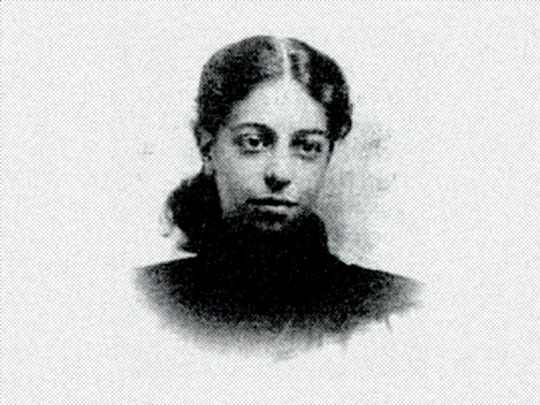
Angelina Weld Grimké (deceased)
Gender: Female
Sexuality: Lesbian
DOB: 27 February 1880
RIP: 10 June 1958
Ethnicity: African American, white
Nationality: American
Occupation: Journalist, writer, teacher, playwright, poet
Note: First African-American women to have a play publicly performed.
#Angelina Weld Grimké#Angelina Weld Grimke#lgbt history#black history#lgbt#female#lesbian#1880#rip#historical#poc#black#biracial#african american#journalist#teacher#playwright#poet#first#popular#popular post
162 notes
·
View notes
Text
Writing Tip #2: Sometimes you've just gotta be like Nike
The best cure for writers' block I've found is to keep writing even when you have no inspiration. Push through the garbage, and you'll often find that ideas start coming to you, but if you insist you're uninspired, you will be. This is part of the reason why it's so great to write to prompts. Game-fying the struggle gets you out of your head a bit.
Go for a walk and tell yourself you have to pick one random thing to write about. Open the dictionary, select a word off the page you opened to and try to do something with that. As Isaac Asimov said, sometimes doing something mindless like watching a movie helps.
Basically the more stimuli you surround yourself with, the more likely you are to find inspiration. You can generate that stimuli yourself just by yeeting words onto a page - you 100% can inspire yourself.
And remember that nobody ever said you have to keep the draft. If it's garbage, it's not like you suddenly destroyed your story idea for good - it's been poisoned by one bad draft and is dying of failure-itis.
I'm creating new prompts every week you can check out every Saturday if you're looking for inspo. I also highly suggest watching a show you like or a new show, listening to music or "the dictionary method" if you're ever feeling stumped.
#isaac asimov#writing tips#writing advice#tips#advice#writeblr#bookblr#writing#write#authors#writers#black writers#teen writers#female writers#hispanic authors#leyelle#my writing#african american writers#writers on tumblr#writerscommunity#young writer#writers and poets#tumblr writers#teen authors#learn to write#becoming a better writer
22 notes
·
View notes
Text

The Flight of the Arrow
Artist: Thomas Buchanan Read (American poet and painter, 1822- 1872)
Genre: Narrative Art
Date: 1868
Medium: Oil on canvas
Collection: Pennsylvania Academy of Fine Arts, Philadelphia, PA, United States
#painting#oil on canvas#fine art#narrative art#female figure#boy figure#cloud#chariot#wings#arch#arrow#flight#oil painting#thomas buchanan read#american painter#american poet#19th century painting#american art#artwork
26 notes
·
View notes